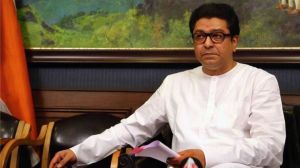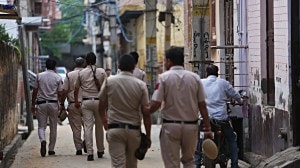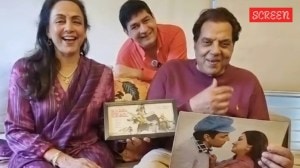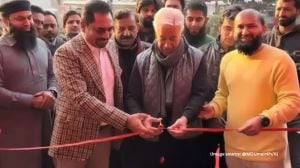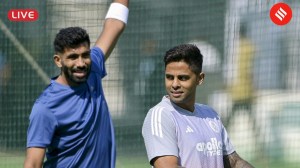Keep the polls on track
Amidst the tragedy and confusion created by terrorist violence in Jammu and Kashmir, and with the exchange of artillery fire across the bord...

Amidst the tragedy and confusion created by terrorist violence in Jammu and Kashmir, and with the exchange of artillery fire across the border, one constant is the Centre8217;s determination to hold elections in the state. In fact, a free and fair election is central to the government8217;s strategy now unfolding in this tension-torn region. It is not as if elections are new to J038;K. An elected government has been in place in Srinagar and it is about to complete its full term of five years. There is no need to compare the situation with the Pakistan-occupied Kashmir where, like the rest of the country, democracy is non-existent. This is not to argue that all the elections in the state have been flawless. Questions are indeed asked about the representative character of the present dispensation headed by the National Conference leader, Farooq Abdullah. The low turn-out for voting, induced by a host of factors, was mainly to blame for this. The success of the next elections, due in September, will depend on how much confidence it will generate among the voters. A measure of success will be the number of political parties contesting the elections. It is, therefore, necessary to persuade all political parties, national and regional, with a presence in the state to take part in the polls.
The All-Party Hurriyat Conference, which is an umbrella body of nearly two dozen Kashmiri organisations, is an untested entity. Though it speaks with a great measure of authority, nobody has a clue about the kind of support it enjoys among the people. Its ability to organise bandhs and shutdowns at short notice has never been in doubt. But beyond that, it does not seem to command much support. A decade of violence has brought them no gains. Yet, it never tires of calling the National Conference a puppet organisation of the Indian state. If the Hurriyat really wants to provide an alternative to the present dispensation, it has no other way but to present its case to the people and seek their mandate. This was the advice the Kashmiri leader, Syed Nazir Gilani, recently tendered to the Hurriyat. If it persists with the idea of taking part only in an election under its own 8216;election commission8217;, it is tantamount to withdrawing from the election scene. The Indian state has one of the most impartial bodies to conduct elections 8212; the election commission has in the past provided expertise in holding polls in various nations in the region. However, this does not mean that there is no scope for improvement; the Hurriyat and indeed every political party is free to suggest steps that will make elections free and fair. Suggestions that there should be observers and that the elections should be held under President8217;s rule have been made.
It is puerile to believe that those inimical to the state will remain quiet once the election process gets underway. A successful election will deprive them of opportunities to fish in troubled water. A sudden spurt in cross-border terrorism can indeed be expected. Whether the incident at Kaluchak in Jammu was calculated to put the election process off-track is not known but such a possibility cannot be ruled out. It is time the government engaged interlocutors who are in a position to persuade political parties to take part in the elections. More than anything, the state needs good governance.
- 01
- 02
- 03
- 04
- 05








